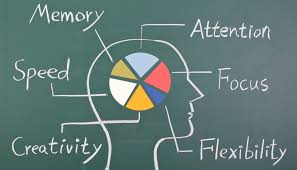From Hell to Helping: Navigating the Challenges of Recovery in the Field
They say those who can't do, teach. But what about those who've been to hell and back? Can they teach, counsel, or nurse? Should they? The question of individuals in recovery entering the helping professions is a complex one, filled with landmines, silver linings, and a whole lot of gray area.
The Dark Side: Relapse Risks and Unfinished Business
Let's get the scary stuff out of the way first. The helping professions aren't for the faint of heart, and they're certainly not a cakewalk for those in early recovery. The stress, the trauma, the endless needs of others...it's a recipe for disaster if you're not solid in your own sobriety. One moment of weakness, one boundaries slip, and you could be face-first in the booze or dope again. And this time, you're not just dragging yourself down, but also the vulnerable people relying on your care.
There's also the matter of unfinished business. If you're still wrestling your own demons, how can you hope to exorcise anyone else's? The wounds of recovery are still raw, the self-loathing still potent. Can you truly offer compassion when a little part of you is screaming "I'm a fraud, an addict, a mess"?
The Light Side: Lived-In Experience and Compassion for Days
But what if the darkness is exactly what qualifies you to be a light? Those in recovery have been to the depths of human suffering and crawled back out. They know the taste of desperation, the feel of hitting bottom, the struggle to find a glimmer of hope. And it's exactly this lived-in experience that can make them exceptional healers.
There's a compassion that can only be born of shared pain. A recovered addict knows what it means to feel broken, shameful, and lost. They know the courage it takes to seek help, to keep showing up even when progress feels nonexistent. This isn't textbook empathy – it's the real deal.
The Field's Dilemma: Protecting Clients, Embracing Potential
So how does the field navigate this? On one hand, we need to protect our clients from anyone who might do more harm than good. No one in the throes of a relapse belongs in a position of trust. But on the other hand, are we throwing the baby out with the bathwater if we dismiss the potential of recovered individuals outright?
Perhaps the answer lies in discernment, not blanket policies. Can this person demonstrate solid sobriety, self-awareness, and a willingness to do their own therapeutic work? Or are they trying to escape their issues under the guise of helping others?
A Question of Timing, Not Morality
At the heart of the matter, it's not about whether people in recovery can make good helpers (they can). It's about when they should take on this role. Recovery isn't a destination, but a journey. There are seasons for intense self-focus and seasons for pouring into others.
The key is getting honest about where you're at. Is helping a way to feed your own soul, or is it a way to avoid your still-open wounds? Only you know the answer. But get it honest, because the lives of others hang in the balance.
The Bottom Line: It's Complicated (Like Us)
There are no easy answers here. But maybe that's okay. After all, recovery and the helping professions are about embracing the messy, the gray, the imperfect. It's about knowing that even in our darkest corners, there's the potential for light.
So let's stop pretending we have it all together, whether we're in the helper's chair or the client's. Let's own our struggles, our fears, our messy humanity. Because in the end, it's not about being perfect – it's about being real. And that's something any recovering hell-raiser can offer in spades.-Belle-






No comments:
Post a Comment